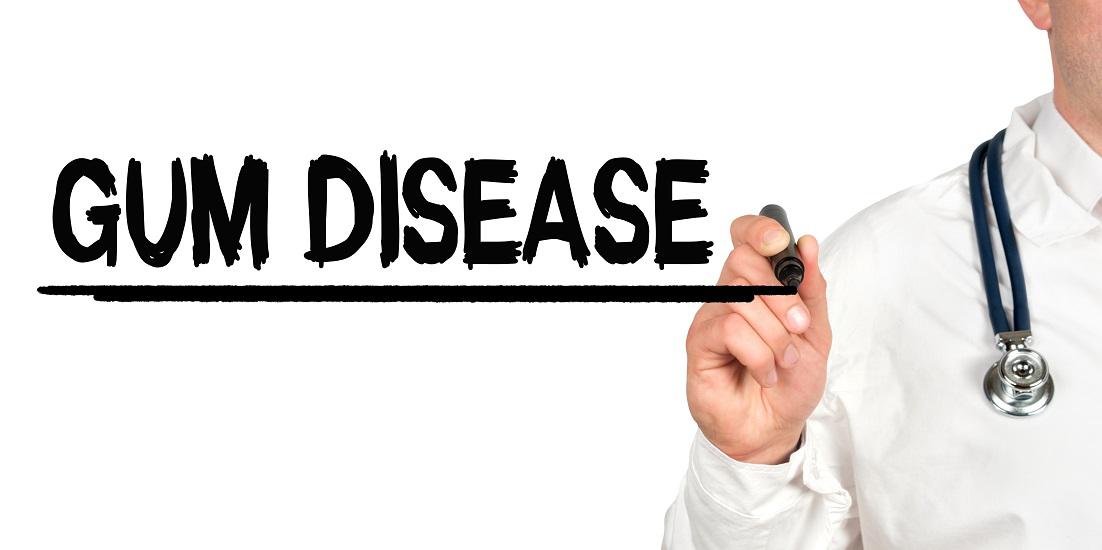 Gum disease, also known as periodontal disease, is one of the most severe oral health issues plaguing American adults. In fact, the CDC reports that almost half of American adults over age 30 have symptoms of gum disease. With statistics like that, you may have gum disease without even knowing it.
Gum disease, also known as periodontal disease, is one of the most severe oral health issues plaguing American adults. In fact, the CDC reports that almost half of American adults over age 30 have symptoms of gum disease. With statistics like that, you may have gum disease without even knowing it.
During Gum Disease Awareness Month, our goal is to help as many people as possible avoid gum disease. For those who already have it, we’ll provide tips to keep it from advancing and encourage you to seek the appropriate treatments.
Do You Have Gum Disease?
First things first. Let’s figure out if your smile is being affected by gum disease. This article can’t diagnose you, but it can give you an idea about what’s going on inside your mouth.
Here are several gum disease symptoms to be aware of:
- Persistent bad breath
- Red or swollen gums
- Sore or bleeding gums
- Pain when chewing
- Loose teeth
- Sensitive teeth
- Receding gums
- New gaps between teeth
It’s important to note that the early stage of gum disease can be impossible to detect without a professional eye. That’s why it is so important to visit your dentist twice a year.
How to Avoid Gum Disease
If you don’t have gum disease, congratulations! You must be doing something right. However, one small change or oversight can be detrimental to your oral health.
Here are five tips to avoid gum disease:
1. Continue practicing excellent oral hygiene.
Excellent oral hygiene consists of more than just brushing and flossing, though these components are essential. You should brush in the morning, before breakfast and coffee, and in the evening, after your last meal. After brushing in the evening, be sure to floss to remove food particles and plaque from between your teeth.
Apart from your oral hygiene routine, you can practice excellent oral hygiene by:
Drinking water after meals
Sipping water while drinking coffee, soda, and other sugary or acidic beverages
Tongue scraping
Using a dentist-approved mouthwash
2. Be conscientious about what you eat.
Did you know that your gums require certain vitamins and minerals to stay healthy? These include:
- Vitamin C
- Omega-3s
- Melatonin
- Vitamin D
- Zinc
- CoQ10
The best way to get these vitamins and minerals is to eat a nutritious diet, consisting of fruits, veggies, healthy fats, dairy products, and meat. Try to avoid foods like candy, chips, bread, cereal, and crackers that provide little to no nutritional value and can negatively impact your oral health.
3. Quit using tobacco.
Tobacco use increases the amount of tartar in the mouth and induces stress on the gums. If you use tobacco products, you might be amazed at how quickly your oral health improves by quitting.
4. Lower your stress levels as much as possible.
Stress causes an inflammatory reaction in the body. This includes the gums. Additionally, stress can cause jaw clenching and teeth grinding, damaging your gums. To lower your stress levels, find thirty minutes to an hour every day to dedicate to doing something good for you! This can be going for a walk, taking a bath, working out, reading a book, sewing, coloring, or a number of other things.
In the meantime, if you are suffering from jaw clenching or teeth grinding, ask our team about a custom-fitted mouthguard.
5. Visit our dentist every six months.
Regular dental care is an essential component of optimal oral health. During a six-month checkup, our dentist will look for any signs of dental decay, periodontal disease, oral cancer, and other issues. A dental exam every six months allows dentists the opportunity to catch oral health issues in their earliest stages so treatment options are minimally invasive.
During this appointment, you will also receive a dental cleaning to remove plaque and tartar from the teeth and gums.
What to Do if You Have Gum Disease
If you have any of the symptoms listed above, contact our dental team today to schedule a dental cleaning and exam appointment. During this appointment, our team can determine how advanced the periodontal disease is and recommend the appropriate treatment.
Already have a gum disease diagnosis? Follow the guidelines listed above to keep the disease from progressing. However, you may need to visit our office every three months for an exam and cleaning rather than every six months.
Ask Our Dentist About These Gum Disease Treatments
The type of treatment you need will depend on the severity of the periodontal disease. When you visit our office, ask about these gum disease treatments:
- Antibiotics
- Scaling and root planing (deep dental cleaning)
- Flap surgery
- Dental bone grafts
- Gum grafts
- Guided tissue regeneration
- Platelet-rich plasma
Seek Treatment Today
Gum disease is a serious oral health concern that should be addressed immediately. Contact our friendly dental team today to schedule your appointment!

